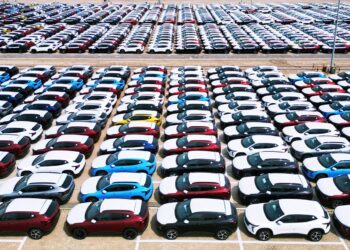No products in the basket.
Singapore has once again been named as the world’s best business environment by the Economist Intelligence Unit (EIU). This marks the 15th consecutive year that the city-state has held the top spot in the EIU’s annual rankings.
The EIU’s rankings take into account various factors such as political stability, economic growth, infrastructure, labor market, and business environment policies. Singapore scored particularly high in areas such as regulatory environment, efficiency of the legal system, and access to financing.
One of the key factors contributing to Singapore’s success as a business hub is its stable political environment. The government is known for its pro-business policies and has worked to create a welcoming environment for foreign investors. The city-state is also known for its world-class infrastructure, which includes modern transportation systems, state-of-the-art telecommunications, and a highly skilled workforce.
Thailand among most improved countries
The biggest improvements over the past year are in Vietnam, Thailand, Belgium, Sweden, India and Costa Rica. Vietnam is the overall biggest mover worldwide, climbing 12 spots in the rankings, while Thailand improves by ten places and India by six.
Taiwan and South Korea also rank in the global top 20
Across Asia, Australia, Taiwan and South Korea also rank in the global top 20. As a region, Asia’s score for policy towards foreign trade is improving. This partly reflects the impact of regional free trade agreements (FTAs) adopted in the past five years, the effects of which will be reflected in our five-year forecast period (2023-27).
Singapore is often cited as the best country in the world for doing business. The city-state has a robust legal system, low tax rates, and excellent infrastructure. It also has a highly educated workforce, making it an ideal location for high-tech industries.
Hong Kong has a similar business-friendly environment to Singapore and is known for its low tax rates, excellent infrastructure, and free-market policies. However, the recent political unrest in Hong Kong has raised concerns about the city’s future as a business hub.
Switzerland, on the other hand, is known for its political stability, strong economy, and favorable tax policies. It is also home to many multinational companies, particularly in the financial sector.
Venezuela, Libya, and Syria at the bottom
At the bottom of the ranking are Venezuela, Libya, and Syria. These countries are currently facing significant political instability and economic challenges, making them difficult places to do business.
The rankings also highlight the impact of the COVID-19 pandemic on the global business environment. The pandemic has caused significant disruptions to supply chains, reduced demand for certain goods and services, and led to changes in consumer behavior. As a result, some countries have seen their rankings drop due to their handling of the pandemic.
China biggest loser
The biggest deteriorations are in China, Bahrain, Chile and Slovakia. China is the biggest loser globally, falling by 11 spots in the second-quarter rankings compared with a year earlier. Although the end of the zero-covid policy is positive for firms operating in China, regulatory changes stemming from the statist direction of economic policy as well as rising local costs weigh on its business environment and limit opportunities for international investors.
Overall, the EIU’s rankings provide valuable insights into the business environments of different countries. While the top-ranking countries offer significant advantages for businesses, companies should carefully consider the unique challenges and opportunities presented by each location before deciding where to invest and operate.
Discover more from Thailand Business News
Subscribe to get the latest posts sent to your email.














